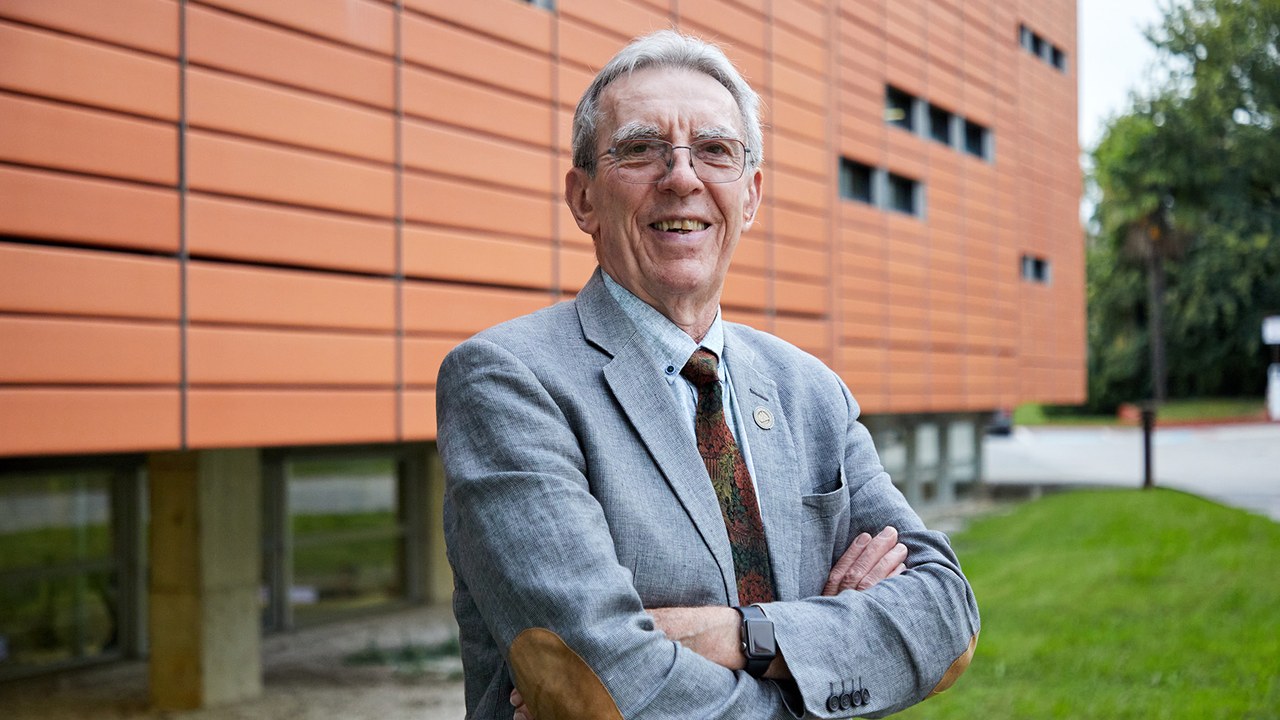From Inorganic Photochemistry to Molecular Machines
Colloquia
- Speaker
-
Jean-Pierre Sauvage
Institut de Science et d’Ingénierie Supramoléculaires (ISIS) University of Strasbourg and CNRS, Strasbourg, France - When
-
2024/11/27
16:00 - Place
- DIPC Josebe-Olarra Lecture Hall
- Add to calendar
-
iCal

The field of artificial molecular machines has undergone spectacular development, from nanoscale molecular devices to mimics of biological motors. To a large extent, this field of research began with the synthesis of catenanes and rotaxanes. Several years ago, our group proposed a practical synthesis of interlocking rings, the approach being derived from earlier work in the field of inorganic photochemistry and water splitting. This scientific adventure tends to demonstrate that moving from one field of research to a relatively distant one can be highly beneficial.
In biology, motor proteins are of vital importance in a wide variety of processes essential to life (ATP synthase, a rotary motor, or the myosin-actin complex of striated muscles behaving like a linear motor responsible for contraction or elongation). Many examples published by highly creative research groups are based on complex rotaxanes or catenanes acting as switchable systems or molecular machines. Particularly significant examples include "molecular shuttles" (Stoddart et al.) and multiple rotaxanes reminiscent of muscles, capable of contracting or elongating under the action of a chemical signal. The molecules are set in motion by electrochemical, photonic, or chemical signals. Ben Feringa's team has created some particularly impressive light-driven rotary motors which will also be briefly discussed.
About the speaker
Prof. Jean-Pierre Sauvage is a Nobel Laureate in Chemistry (2016), widely recognized for his pioneering work in supramolecular chemistry and the development of artificial molecular machines. His early research in inorganic photochemistry paved the way for his groundbreaking achievements in the synthesis of mechanically interlocked molecules, such as catenanes and rotaxanes -- key components in molecular machines. These nanoscale devices, inspired by biological motors, have had a profound impact on the field. Sauvage's innovative approaches in supramolecular chemistry have been instrumental in advancing research on molecular machines, bridging disciplines from chemistry to nanotechnology. He is currently Professor Emeritus at the University of Strasbourg, where he continues to influence cutting-edge research in molecular science.
Prof. Sauvage's web pageWikipedia article
